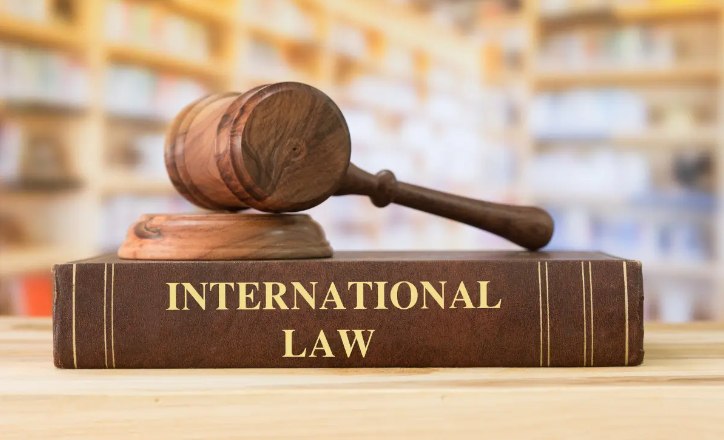Military Action That Defies International Law is Sometimes Justified

International law serves as a framework for the conduct of nations, aiming to promote peace and stability across the globe. Yet history shows us that military action often strays from these legal norms. The tension between legality and moral imperative can create complex scenarios where countries find themselves making critical decisions outside established laws.
While many view actions that defy international law as outright violations, others argue they might be justified under certain circumstances. This debate raises profound questions: Can military interventions ever be permissible if they aim to protect human lives or maintain global security? As we navigate this contentious terrain, exploring key examples and arguments will shed light on a topic that resonates deeply in today’s geopolitical landscape.
Examples of Military Actions that Defy International Law
Throughout history, various military actions have defied international law, often igniting debates about their legitimacy.
One prominent example is the U.S.-led invasion of Iraq in 2003. Lacking a clear mandate from the United Nations, this operation raised significant concerns regarding its legality.
Another instance is Israel’s military operations in Gaza. These actions frequently face accusations of violating international humanitarian law and raising questions about proportionality and civilian protection.
Russia’s annexation of Crimea in 2014 also stirred controversy. This act was widely condemned as a breach of Ukraine’s sovereignty under international statutes.
In each case, while these military actions faced global scrutiny for their legality, supporters argued they were necessary to achieve broader geopolitical or humanitarian goals.
Arguments Against Justification of Such Actions
Critics of military action that defies international law often emphasize the importance of maintaining global order. They argue that bypassing legal frameworks undermines the very essence of cooperation among nations.
Moreover, these actions can lead to long-term instability. Violating international norms may provoke retaliation or escalate conflicts, perpetuating cycles of violence.
Ethical concerns also arise. When countries take unilateral military steps, they risk prioritizing their interests over humanitarian considerations. This raises questions about moral responsibility and accountability.
Additionally, such justifications can create dangerous precedents. If one nation acts outside the law without consequence, others might feel empowered to do the same, leading to a chaotic international landscape where rules are disregarded altogether.
The potential for abuse is significant as well. Governments could exploit claims of self-defense or humanitarian intervention to mask aggressive intentions under a veneer of legitimacy.
The Principle of Self-Defense
The principle of self-defense is a cornerstone in discussions about military action. It allows states to protect themselves against imminent threats or attacks. This concept is grounded in both international law and moral reasoning.
When faced with aggression, nations often feel compelled to act swiftly. The urgency of the situation can compel them to bypass lengthy diplomatic negotiations. In such cases, the immediate need to safeguard citizens comes into play.
However, this right isn’t absolute. Nations must demonstrate that their response is proportional and necessary. Critics argue that too much leeway could lead to abuses under the guise of self-defense.
Despite these concerns, many still advocate for its application during crises where inaction may result in devastating consequences. The debate continues as global dynamics shift and new threats emerge on the horizon.
Humanitarian Intervention and Responsibility to Protect
Humanitarian intervention is a contentious topic in international relations. It involves military action taken to prevent or stop widespread suffering or human rights violations. Advocates argue that sometimes the cost of inaction outweighs respecting national sovereignty.
The Responsibility to Protect (R2P) doctrine emerged as a framework for addressing these dilemmas. It asserts that states have an obligation to protect their populations from genocide, war crimes, and ethnic cleansing. When they fail, the international community has a moral duty to intervene.
Critics warn against misuse of R2P for political ends. They caution that interventions can lead to unintended consequences, further destabilization or long-term conflict.
Despite skepticism, humanitarian intervention remains a pivotal debate within international law discourse. The question persists: when does moral responsibility trump legal restrictions? This ongoing conversation highlights the complexities surrounding military actions deemed necessary for ethical reasons.
Case Study: NATO’s 1999 Bombing of Yugoslavia
The NATO bombing of Yugoslavia in 1999 remains a contentious example of military action that defies international law. Triggered by the humanitarian crisis in Kosovo, NATO’s intervention aimed to halt ethnic cleansing and protect civilians.
Many argue that this operation was necessary. The violence against ethnic Albanians had escalated dramatically, prompting fears of wider regional instability. NATO acted without UN Security Council approval, which raises questions about legality versus morality.
Critics highlight the bombings’ consequences: civilian casualties and infrastructure destruction were significant. The long-term impact on Serbia and surrounding nations is still felt today.
Supporters maintain that the intervention demonstrated a commitment to human rights. They assert it set a precedent for future humanitarian actions, suggesting sometimes military action can be justified despite legal constraints. This case challenges us to weigh sovereignty against moral obligations in complex global scenarios.
Conclusion
The debate surrounding military action that defies international law is complex and often divisive. While international laws aim to maintain peace and stability, they can sometimes hinder timely responses to urgent crises. The principle of self-defense acknowledges the need for states to protect themselves from immediate threats. This notion resonates in instances where lives are at stake.
Humanitarian intervention, under the Responsibility to Protect doctrine, also plays a crucial role in justifying military actions that may otherwise breach legal frameworks. NATO’s bombing of Yugoslavia serves as a pertinent example of how interventions can be viewed through varying lenses—some see it as a necessary action to prevent ethnic cleansing, while others criticize it for bypassing established protocols.



